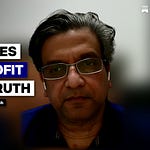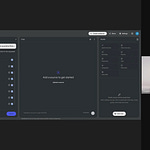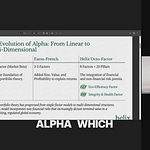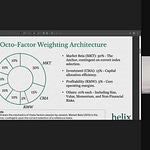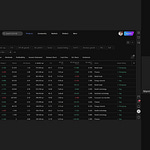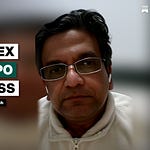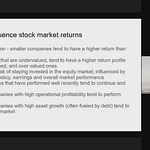Thank you to everyone who tuned into my live video! Join me for my next live video in the app, at 11am Tuesdays.
The market landscape is undergoing a profound transformation. The traditional risks we’ve been trained to watch—inflation, interest rates, and geopolitical tensions—are still important, but they are now intertwined with a new class of systemic threats that require a re-evaluation of how we invest. As I discussed in my live session, for individual LPs and family offices, this isn't just about preserving wealth; it's about positioning your capital to thrive in a world that is fundamentally different from the one that generated it.
The AI Bubble and the Illusion of Growth
The current excitement around AI mirrors the dot-com bubble of the late 90s. We see huge investments pouring into companies, yet the underlying economics are fragile. In the live session, I shared a powerful data point: less than 2% of users pay for popular chatbots. This creates a disconnect: soaring valuations fueled by speculative capital, not sustainable revenue. For a savvy LP, this isn't a signal to pull back entirely from tech, but to be highly discerning. Your due diligence must go beyond a company's buzz and into its core business model. Ask not just "What's the technology?" but "Where is the product-market fit? Where is the real-world value that people will actually pay for?"
Underemployment: A Looming Economic Crisis
Beyond the tech sector, we are facing a societal risk that threatens the foundation of our economic system: underemployment. This is not about the headline unemployment rate; it's about a growing portion of the population, especially young people, who are in jobs that don’t fully utilize their skills or pay them a living wage. As I pointed out, this is an issue that is a "big no" for traditional data sources, yet we know for a fact that 20-25% of the under-30 population is underemployed. This quiet crisis has significant ripple effects. When a large segment of the population can't earn enough to save or invest, consumer spending stagnates, and the tax base erodes. For family offices and LPs with a long-term view, this means that even if your portfolio companies are thriving on paper, they are operating in an economy with weakened consumer demand.
The Concentration of Wealth and the End of an Era
A final, critical risk is the increasing concentration of wealth and power in the hands of a few. As I asked in the session, "Can we let creation fall into the hands of a select few?" This isn't just about financial returns; it’s about systemic risk. When a small number of billionaires and mega-corporations control key industries, the entire system becomes fragile. As an LP, you must ask yourself if you want a system where a few powerful individuals can, by their actions alone, put the entire financial system at risk.
A Path Forward: Redefining Your Investment Thesis
The solution is not to simply retreat, but to redefine your investment thesis. In the live session, I challenged the audience to think about whether they are "investing in the status quo or investing for the future." The future, in this context, means generations. This requires a shift from chasing financial returns to a more holistic view of value. Consider investments that address these new risks directly:
Fund Next-Generation Founders: Look beyond the "big names" and invest in new founders who are building companies with sustainable business models and strong product-market fit.
Invest in Human Capital: Look for funds and companies that are focused on upskilling and empowering the next generation of workers. These are the ventures that will build a stronger, more resilient economic foundation.
Diversify Beyond "Growth" at All Costs: Seek out stable, profitable businesses that provide tangible value, rather than just chasing the next unicorn.




